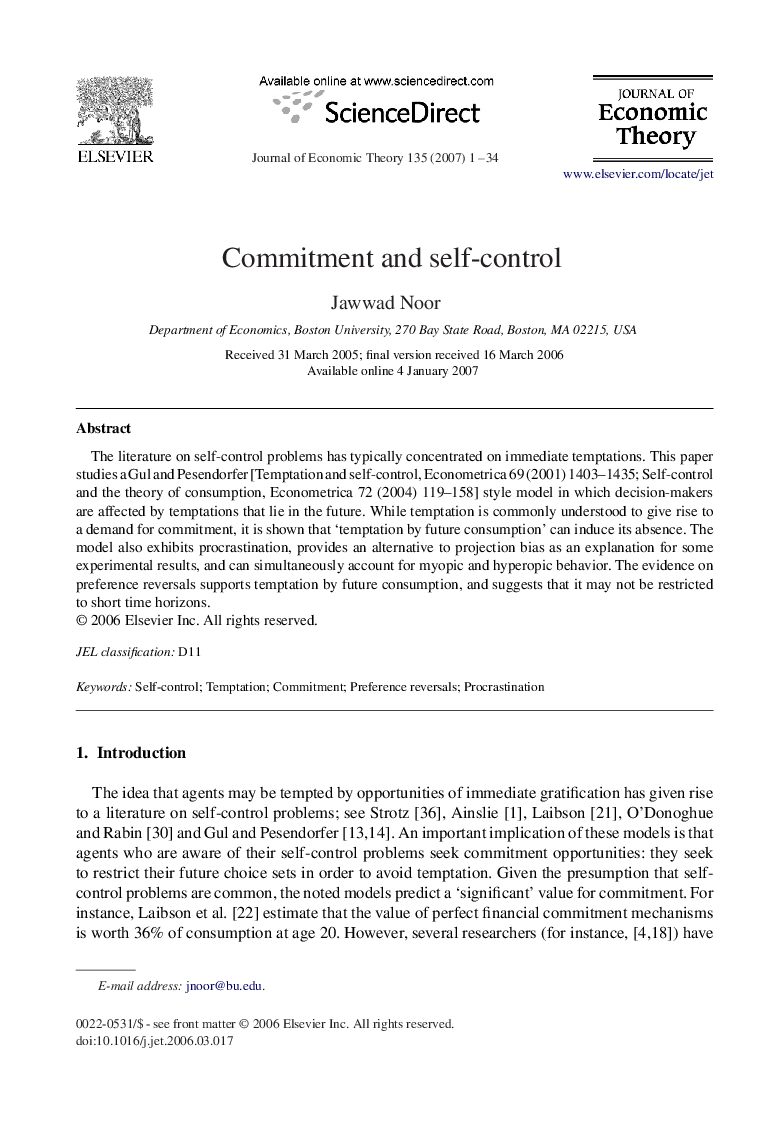| Article ID | Journal | Published Year | Pages | File Type |
|---|---|---|---|---|
| 957696 | Journal of Economic Theory | 2007 | 34 Pages |
Abstract
The literature on self-control problems has typically concentrated on immediate temptations. This paper studies a Gul and Pesendorfer [Temptation and self-control, Econometrica 69 (2001) 1403-1435; Self-control and the theory of consumption, Econometrica 72 (2004) 119-158] style model in which decision-makers are affected by temptations that lie in the future. While temptation is commonly understood to give rise to a demand for commitment, it is shown that 'temptation by future consumption' can induce its absence. The model also exhibits procrastination, provides an alternative to projection bias as an explanation for some experimental results, and can simultaneously account for myopic and hyperopic behavior. The evidence on preference reversals supports temptation by future consumption, and suggests that it may not be restricted to short time horizons.
Related Topics
Social Sciences and Humanities
Economics, Econometrics and Finance
Economics and Econometrics
Authors
Jawwad Noor,
